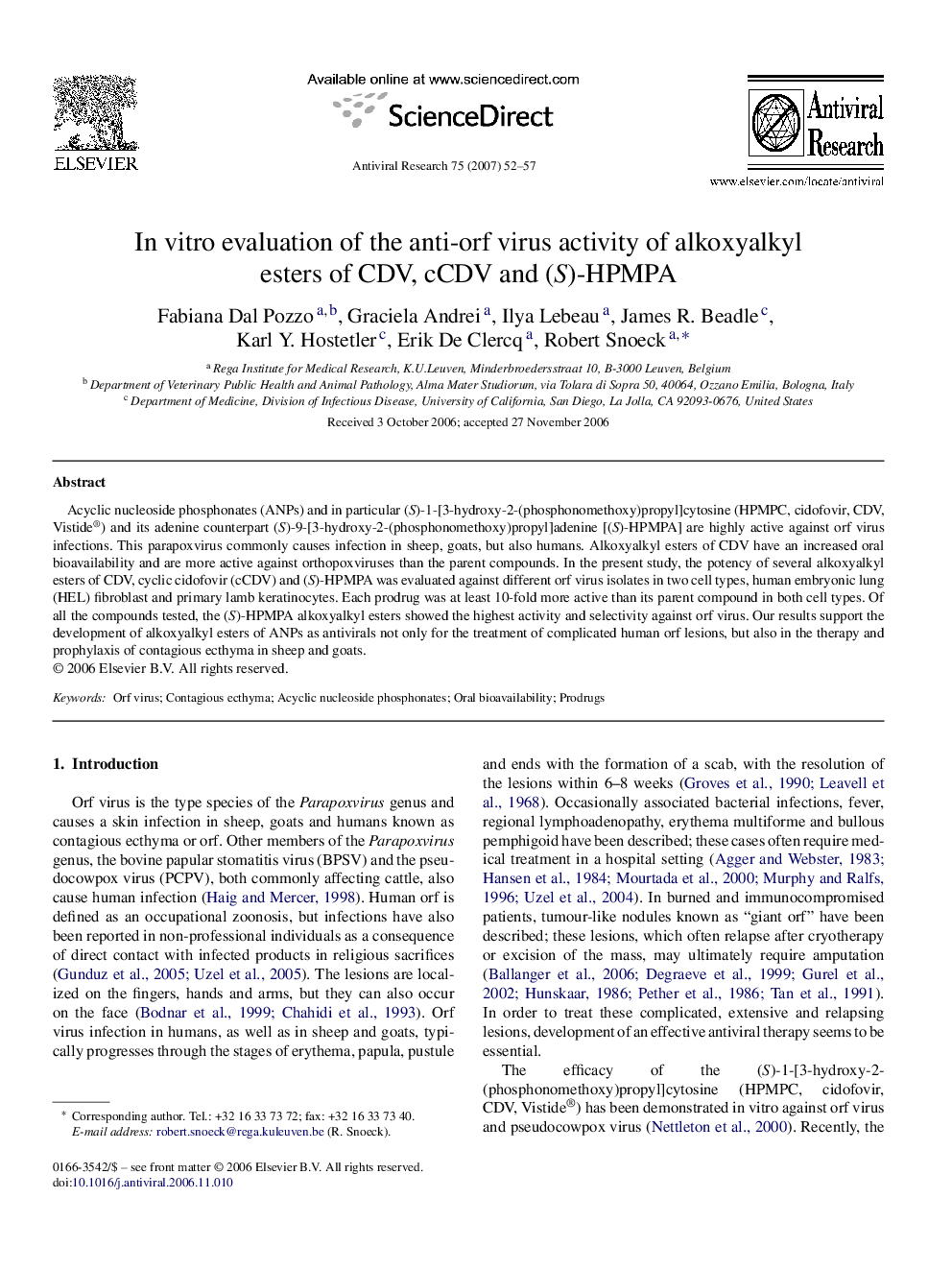| Article ID | Journal | Published Year | Pages | File Type |
|---|---|---|---|---|
| 2511281 | Antiviral Research | 2007 | 6 Pages |
Acyclic nucleoside phosphonates (ANPs) and in particular (S)-1-[3-hydroxy-2-(phosphonomethoxy)propyl]cytosine (HPMPC, cidofovir, CDV, Vistide®) and its adenine counterpart (S)-9-[3-hydroxy-2-(phosphonomethoxy)propyl]adenine [(S)-HPMPA] are highly active against orf virus infections. This parapoxvirus commonly causes infection in sheep, goats, but also humans. Alkoxyalkyl esters of CDV have an increased oral bioavailability and are more active against orthopoxviruses than the parent compounds. In the present study, the potency of several alkoxyalkyl esters of CDV, cyclic cidofovir (cCDV) and (S)-HPMPA was evaluated against different orf virus isolates in two cell types, human embryonic lung (HEL) fibroblast and primary lamb keratinocytes. Each prodrug was at least 10-fold more active than its parent compound in both cell types. Of all the compounds tested, the (S)-HPMPA alkoxyalkyl esters showed the highest activity and selectivity against orf virus. Our results support the development of alkoxyalkyl esters of ANPs as antivirals not only for the treatment of complicated human orf lesions, but also in the therapy and prophylaxis of contagious ecthyma in sheep and goats.
